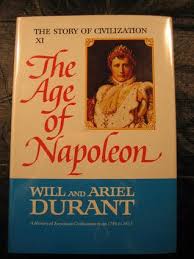One of my running buddies tells a story about his immigrant grandfather. Arriving from Europe after the First World War, Mike worked long shifts as a dishwasher, was promoted to cook, eventually opening his own diner. A generation later, my buddy’s grandfather owned four restaurants, employing dozens of people. He loved his work, worked hard, made a good living. Nearing retirement age, Mike sat down with his children to discuss a plan for succession.

“Pop, “the older son said gently. “We’ve been telling you for years, you need to have proper bookkeeping. You don’t have records. You don’t even have a balance sheet. There’s no income statement. How are we supposed to determine profit and loss?”
“I came to this country with nothing except a pair of pants,“ Mike replied. “Subtract the pants. Everything else is profit.”

Indeed, the nice thing about money is that it is, by definition, easy to quantify. Which can lead to some unreasonable judgments. and some finger-pointing.
In The Age of Napoleon, Will and Ariel Durant write of the emperor’s mother watching as the basement of her castle is filled with gold. Eight soldiers are required to carry the heavy boxes filled with sovereigns. Each gold coin is stamped with a picture of her son. Each coin would feed a family of four for a year. The line of soldiers and the boxes filled with coins stretches out of sight down the road. Napoleon’s mother is the wealthiest person in Europe. Napoleon’s mother assesses the situation: room after room filled with boxes of gold coins.

Napoleon’s mom: “It’s not enough.”
Indeed, it is never enough. People who say money can’t buy happiness just don’t know where to shop suggests a snarky person, probably one who isn’t concerned with food insecurity.
My issue this week concerns parents who suggest we have given our child everything—a stable two-parent home, his own room, every advantage—what more could he want? Emotional bank accounts are harder to assess. Money is easily counted; psychic well-being, not so much.
It’s easy to make fun of wealthy people who aren’t content with how much money they have. Should we also deride folks who seem to have “emotional coinage”? Money is one-dimensional. Happiness is multi-faceted. Heartbreak, loss, disappointment, and dissatisfaction affect everyone differently. But shouldn’t kids from “good” homes turn out okay? Is there room for sympathy for children who haven’t faced adversity?
Immigrant families frequently express, they can take away your land, they can take away your money, they can take away your home, but they cannot take away your education. The emphasis on learning makes sense to this author. But, I would also suggest that parents are unable to make perfect predictions about whether even a graduate degree will hold a child in good stead.
Because we all know some unhappy wealthy people and some miserable smart folks: we have all met some discontented doctors, unfulfilled hedge fund managers, and despondent tenured professors. Maybe the best we can do is to accept Bob Dylan’s entreaty (prayer?) in “Forever Young”: May you have a strong foundation; When the winds of changes shift.

All we can give our kids are roots and wings. Helping our beloved children to develop a sense of themselves starts with allowing them to be who they are. Even the most sheltered, safe lives must prepare for occasional rainfall. Providing for our children’s educations like affording them food, clothing, and shelter may be necessary but not sufficient conditions. As always, helping our kids acknowledge the inevitability of and prepare for stormy weather, is a reasonable goal. Because there is a significant difference between economic and emotional preparedness.

Did Mike’s grandfather, who immigrated with nothing except a pair of pants, have an easier accounting? Was his paradigm “work hard, be successful or starve in the street”? Did Mike’s grandfather not have time to worry about fulfillment, contentment, inner peace? Are our enriched children of this generation paralyzed by choices? Would they be better off “pulling themselves up by their boot laces”?
I wish I knew.


